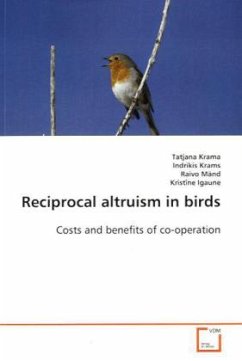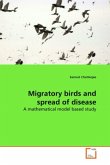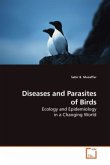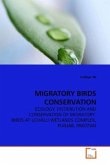Unrelated passerine birds often join together while
mobbing, a widespread antipredator behaviour during
which birds harass a predator. Prey individuals may
also warn each other about the approaching
predators. Although previous analyses concluded that
mobbing and alarm calls could not have evolved via
reciprocity, this book shows that birds
preferentially join mobs with neighbours that have
aided them previously, suggesting that the birds may
utilize reciprocity-based strategies involving
individual recognition and recollection of previous
interactions with others. This implies a level of
sophistication in bird communities greater than
had previously been realized adding a piece of new
knowledge to reveal co-operation between unrelated
individuals which is one of the most important
question in evolutionary biology.
mobbing, a widespread antipredator behaviour during
which birds harass a predator. Prey individuals may
also warn each other about the approaching
predators. Although previous analyses concluded that
mobbing and alarm calls could not have evolved via
reciprocity, this book shows that birds
preferentially join mobs with neighbours that have
aided them previously, suggesting that the birds may
utilize reciprocity-based strategies involving
individual recognition and recollection of previous
interactions with others. This implies a level of
sophistication in bird communities greater than
had previously been realized adding a piece of new
knowledge to reveal co-operation between unrelated
individuals which is one of the most important
question in evolutionary biology.








